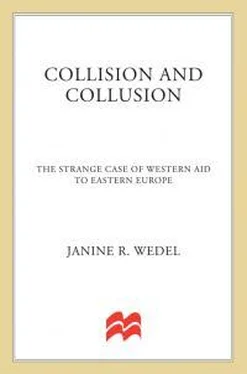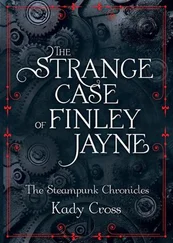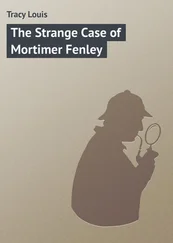There were powerful reasons for the Clan to stick together after the breakup of the Soviet empire in 1991. Chubais called on its members to serve in key government positions. Operating as part of a strategic alliance was crucial to the Clan’s effectiveness in helping to run the country, as well as in tapping into lucrative opportunities.51 Members of the Clan discovered that, working together, their Western contacts could help them leverage foreign support for use as a political and financial resource at home. And, indeed, the Clan did serve as a critical launching pad and resource for Chubais.
NOBLE REFORMERS IN THE SHADOWS OF SOCIALISM
The Chubais Clan was well positioned to become the group of “reformers” favored by the West. Donors tended to identify the reformer as such, not because he was a change agent in support of market reform, but because he possessed the personal attributes that Westerners responded to favorably. Although the reformer might, indeed, have embraced market reform, the identity markers that Westerners appeared to recognize most often were a pro-Western orientation; the ability to speak English and to converse in the donor vernacular of “markets,” “reform,” and “civil society”; established Western contacts (the more known or influential, the better); travel to and/or study in the West (a privilege generally reserved for the economic elite); and, perhaps most important, a self-proclaimed identity (at least vis-à-vis the West) as a reformer who associated with other reformers.
The most popular Russian reformers in Western political and aid circles were young, energetic, and adept in their dealings with donors. As Donald Jensen, former second secretary at the U.S. Embassy in Moscow, put it: “Absolutely, they knew how to play us.… And knew very consciously how to project what they wanted to an American audience and get the Americans to go along.”52
Westerners often took members of the Clan at face value. As USAID’s Thomas A. Dine stated, “If [Chubais associate] Maxim Boycko tells me that X, Y, and Z are reformers, I believe him.”53 Dine went on to note that “it’s no secret that nationalists and communists don’t like [Chubais], and perhaps that’s the best proof of all [of his reform credentials].”54 Western officials and the media promoted the of Chubais and the “Young Reformers” and overlooked other reform-minded groups. A self-promoting view that the only alternative to the Chubais Clan was the communists, loudly advanced by the Chubais-Harvard transactors (and by influential parts of the Western aid and political community), does not hold up under careful scrutiny. Throughout the aid story, at every step of the way, there existed viable and important alternatives to the policy choices that were made and to the West’s strategy of conducting economic reform through political support of the Yeltsin government and one clan.55
Identifying reformers on the basis of personal attributes and declared ideological positions, as they looked in the West, clearly had a cost: It alienated and often overwhelmed other reformers and potential reformers, as well as many Russians generally. Aleksandr Lebed, Russia’s national security chief, questioned Western perceptions of reformers throughout the aid effort. In 1996, his spokesman pointed to a common misperception by contrasting two governors:
We Russians and you Americans often use the same words meaning different things. For example “the true reformer”: Is it a friend of the West, as you usually think? We have two governors—one is considered by mass media to be a true liberal, reformer, market-thinker. He really uses only the market language, is West-oriented, young, has “camera appeal,” is full of energy and zeal. He has all the opportunities that the title—“true reformer”—affords him: support from Moscow and the West. The second reformer is called “Red,” almost communist, anti-reformer, old-thinker. No one can say that this man is the friend of the West and the central government. At first glance the picture is clear, there is no doubt: one is “the Reformer,” the other “the communist.” But in reality the first man can speak well and advertise himself to the West, while the other one tries to do little, slow but effective steps to achieve civilized market reform and does not care how he looks in the eyes of the mass media.56
In short, donors, by equating Western-oriented Russians with reform agendas and traditionalist or communist Russians with anti-reform agendas, created stereotypes. As political scientist Peter Stavrakis observes, these stereotypes made it “virtually impossible to conceive of a pro-reform Russian nationalist.”57
An even more fundamental problem with the view that the fate of the Russian political economy was being decided by a contest between a few good reformers and everyone else was that this belief overemphasized ideology and neglected the role of communist legacies in change processes. Although such a dramatic step as the breakup of an empire might have looked like a death followed by a resurrection, in fact it was more like a messy divorce involving custody disputes over young children. The emergence of the new Russian state in 1991 did not constitute a fresh starting point: Deep-rooted groups and processes helped to shape the very nature of the Russian state.
While the chief political analyst at the U.S. embassy in Moscow, Thomas E. Graham speculated that Russia is run by rival “clans” with largely unchecked influence.58 With unstable political, legal, and administrative structures, there were myriad opportunities for clans to penetrate public institutions and lay claim to resources. This state of affairs enabled clans to bypass other sources of authority and influence and thereby enhance their own. As the main rivalry among clans occurred within the executive branch, the Russian government could not ensure impartiality under the rule of law.
The Chubais Clan was so closely identified with particular ministries and institutional segments of government that the respective agendas of the state and the Clan sometimes seemed identical. The same was true of competing clans, which had similar ties with other government organizations, such as the Central Bank, the Ministry of Finance, and the “power ministries” (the Ministries of Defense and Internal Affairs, and federal security services). These clans depended on state authorities to stand far enough away from commercial activities so as not to interfere with the clans’ acquisition and allocation of resources, but close enough to ensure that no rival clans would draw on the resources. Under these circumstances, it would be unreasonable to expect that any ambitious group would neglect its own financial and political agendas, especially when it had been designated the sole beneficiary of so much aid.
What were the effects of concentrating aid on one particular clan, if the clan system was “business as usual” as in Russia? Was it realistic to expect that any clan would operate in a vacuum, especially when it was singled out to receive resources to which competing clans would not have access? Beyond this, given the Russian self-image of a wounded superpower,59 was it reasonable to expect that Western support of one particular clan in a highly politicized environment would not fuel charges of Western interference from other clans? Aid designed to promote a particular political group does not advance the building of institutions that are transparent and unaligned with any one clan. The goal of working toward such institutions is critical in structuring a democratic political and economic system, even if the goal is virtually impossible to achieve.
Although Western donors were inclined to view the loyalty exhibited by the Chubais Clan as part of its effectiveness, many Russians regarded the Clan as a communist-style group that was adept at commandeering resources for itself. The Chubais transactors’ primary source of clout was neither ideology nor even reform strategy, but precisely their standing with and their ability to get resources from the West. Long-established loyalty might mean “They’re effective” in the West, but in Russia it tended to mean “They’re sharing money.”
Читать дальше












